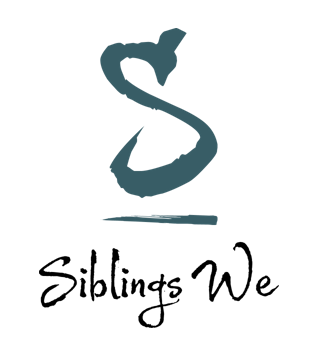

Myra here.
It’s Monday, What are You Reading is a meme hosted by Jen from Teach Mentor Texts and Kellee and Ricki from Unleashing Readers (new host of Monday reading: Kathryn T at Book Date). Since two of our friends, Linda from Teacher Dance and Tara from A Teaching Life have been joining this meme for quite awhile now, we thought of joining this warm and inviting community.

A week ago, we launched our reading theme for April – June 2021. We are on the look-out for books with the following themes:
-
Stories of exile and movement from one place to another – either by choice or by circumstance
-
Narratives on im/migrants, belonging and exclusion
-
Tales of people who are in transition and displaced from their homes
-
Stories of seeking refuge and sanctuary and finding forever homes
-
Narratives of loss and dispossession

The Mediterranean [Amazon | Book Depository]
Written and Illustrated by Armin Greder
Published by Allen Unwin (2018)
ISBN: 1760630950 (ISBN13: 9781760630959) Bought a copy of the book. Book photos taken by me.
I am a huge follower of Armin Greder’s complex and multi-layered picturebooks. The last book of his that I reviewed here was Flight (Amazon | Book Depository) co-authored with Nadia Wheatley back in 2016.
The Mediterranean, with its look and feel and overall packaging – can serve as a companion text to The Island (Amazon | Book Depository). Told almost in an entirely wordless narrative, the text can only be seen in the first part of the story, against a backdrop of starkly white pages:
After he had finished drowning,
his body sank slowly
to the bottom,
where the fish
were waiting.

The visual imagery goes on to show the cycle of the fish feeding on this man who sank to the bottom of the ocean, the fish being captured by fishermen and eventually being served in a fancy restaurant and eaten by creepy-looking men who are dealing in arms/ weaponry that bring death and destruction to villages where people have no recourse but to flee for their lives and seek refuge elsewhere by putting their lives in the hands of mercenaries who cram them into boats which sink into the ocean – and so on down this endless cycle of misery and pain and misfortune.

The power of this storytelling lies in the fact that it requires no words to bring its message across. Greder’s disturbing, largely monochromatic palette, his framing and perspective, the movement and desolation in the pages – allow the reader to bear witness to something so unspeakable, words escape the book creator.

It also highlights the reader’s complicity: perhaps due to casual indifference or downright ignorance. The Afterword written by Alessandro Leogrande, a writer and journalist, provided the historical backdrop behind the making of this story:
It was winter, twenty years ago, when a small vessel sank off the Sicilian coast with three hundred Indian, Pakistani, and Sri Lankan migrants on board. Over the subsequent weeks, the fishermen of Portopalo began retrieving their bodies, which had not yet decomposed. They would find the bodies caught up in their nets as they hoisted them onto their fishing boats, but rather than advise the authorities, they preferred to throw them back into the sea. That way, they would avoid hassles from the coastguard, and would not have their fishing activity put on hold.

Leogrande went on to depict the “double repression” of what he called a “modern day exodus” and how Armin Greder surfaces that which is unspoken into the light, depicting a kind of perverted food chain of sorts that is seemingly-unending.
While there may be people who find narratives like this depressing, I feel immensely privileged to know another variant to a story that is familiar – yet also largely unknown to most people. It also encourages conversations about the role we play in this chain of events, with an unarticulated challenge of how to possibly end it.

Diamonds [Amazon | Book Depository]
Written and Illustrated by Armin Greder
Published by Allen & Unwin (2020)
ISBN: 1760877042 (ISBN13: 9781760877040). Borrowed from Overdrive. Book photos taken by me.
This story begins with a conversation between a mother and a child, with an African helper, Amina standing unobtrusively in the background. The child, Carolina, marvels at her mother’s jewels who shared that they were bought for her by an Uncle Winston (quite possibly the mother’s boyfriend) in Belgium.
Carolina goes on to ask whether diamonds were “made” in Belgium. Mother explains that diamonds are not made, but “mined” – and not in places like Belgium, but in Africa – the same place where Amina is from.

Carolina, then, wonders why Amina does not have diamonds if they are from where she lived and why she isn’t rich. The following pages wordlessly and visually depict how this injustice comes about in such stark detail:

Francesco Boille, a journalist, wrote the Afterword of this story. He noted how Armin Greder is a master at capturing this perverted food chain of humanity:
He calls out our complicity – at times conscious, but very often simply the result of ignorance of the implacable mechanisms of exploitation – in maintaing the chains that keep modern-day slaves… enchained.

These two multi-layered and confrontational narratives boldly bring to light the underbellies of how things come to be – in all its violence, injustice, and enraging inequality perpetuated by men’s greed, vanity, lust for power. I truly hope that more educators learn about these stories so that more critical discussions can be initiated within the classroom to educate and empower young people to begin re-imagining (and eventually build) a more just and humane society.

#SurvivalStories2021 Update: 47/48 out of target 100
May 10, 2021 at 06:30AM Myra Garces-Bacsal


